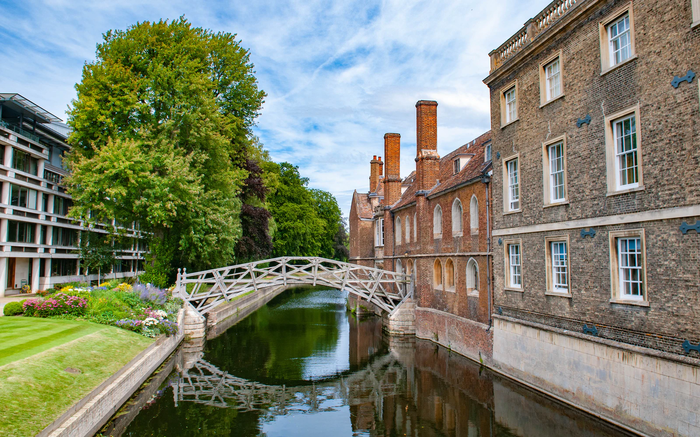New Master of Design degree proposed from 2024
The course would offer a multidisciplinary approach and represent a ‘blend of humanities, science and technical education’

A new Design Tripos and Master of Design degree (M.Des) under the Department of Architecture has been proposed by the General Board of Faculties to commence in the 2024-25 academic year.
With the first exams taking place at Part IA in 2025, the new four-year course would run alongside the existing three-year B.A. (Hons) Architecture degree and admit a cohort of approximately 45 students, approximately equal in size to that of the Architecture Tripos.
It is therefore hoped the M.Des tripos would grow the Department of Architecture’s annual student intake to 90, following sustained oversubscription to the existing B.A. in Architecture which has an historic acceptance rate of around 10%. The Department reported a further 35% increase in applicants for Architecture last year.
The M.Des is intended to fit with “plans for growth and expansion of provision of integrated Master’s courses by the Department of Architecture within the School of Arts and Humanities (SAH), reducing the risk of lack of uptake.”
One advantage of the new course would be flexibility in paper options, contrasting with the rigidity of the existing Architecture tripos where all papers are offered as core modules only. First and second years would focus on “fundamental papers in the context of design”, with a quarter of teaching taking place in design studios, and “complementary optional papers” available in second and third year.
The course would be conveyed through a “series of core studio projects” applying “multidisciplinary design techniques through hands-on problem-based learning”. Studio teaching would constitute half of all teaching in third and fourth year, with a specialist year-long dissertation offered in fourth year.
The proposal for the new course follows research by the Cambridge Admissions Office, and an A-level student survey carried out at the 2019 Royal Society Summer Science Festival which highlighted a preference for interdisciplinary learning.
The report by the General Board also stated the course’s intention to reduce gender disparity in the field of engineering and bolster efforts to widen participation, with less emphasis in admissions on male-dominated subjects such as Physics, where 80% of students are male, and Further Maths, where female students are outnumbered by two to one, in favour of a “broad set of excellent A-level results”. The Tripos would also draw on the oversubscribed pool of applicants for Engineering and National Sciences, which has had less than 40% female applications in the last three years, identifying them as “a wide pool of talented possible students.”
The course would be funded by a Surplus Improvement Fund (SIF) approved by the Planning and Resources Committee alongside student fees, covering costs such as the recruitment of 24 members of teaching and administrative staff. Current Directors of Studies in Architecture would also oversee Design students under the plans.
Speaking to Varsity, Dr James Campbell, Head of the Department of Architecture, celebrated the Tripos as “a new way of teaching engineering and architecture together”, as well as an “exciting” programme which “straddles the arts and sciences”.
Campbell continued: “The Grenfell Fire and the climate change debate have highlighted the fact that architects’ technical skills are not as good as they should be [...] in the post-Grenfell era, architects are looking at how to upgrade their technical skills, with weaknesses in knowledge of areas such as building construction and sustainable design.
“We strongly feel that these are areas that need to be addressed in architectural education, and these are exactly the focuses of the design tripos.”
Meanwhile a University spokesperson told Varsity the course offers a blend of “technical content with design freedom” and “a new approach to tackling societal and environmental issues, including poverty, health and hunger, resource redistribution, energy consumption, and climate action.”
The spokesperson added that the proposal is “continuing through the University of Cambridge’s decision-making process.”
The course announcement follows news this week of the revision to the Music Tripos from the next academic year.
 Comment / Cambridge students are too opinionated 21 April 2025
Comment / Cambridge students are too opinionated 21 April 2025 Comment / Cambridge’s tourism risks commodifying students18 April 2025
Comment / Cambridge’s tourism risks commodifying students18 April 2025 News / Cambridge researchers build tool to predict cancer treatment success19 April 2025
News / Cambridge researchers build tool to predict cancer treatment success19 April 2025 News / News in brief: campaigning and drinking20 April 2025
News / News in brief: campaigning and drinking20 April 2025 Interviews / Meet the Chaplain who’s working to make Cambridge a university of sanctuary for refugees20 April 2025
Interviews / Meet the Chaplain who’s working to make Cambridge a university of sanctuary for refugees20 April 2025



